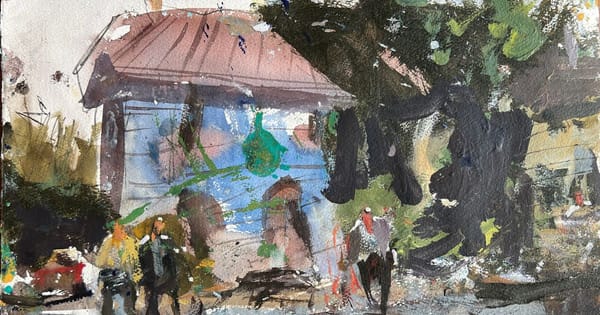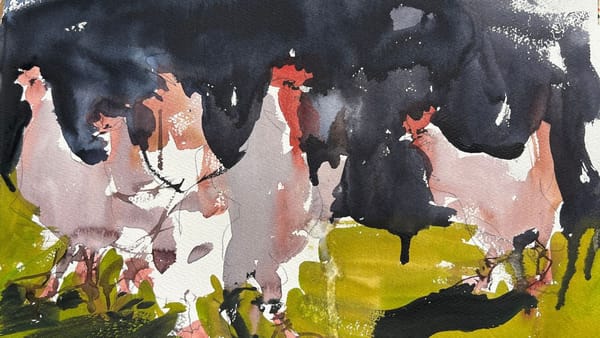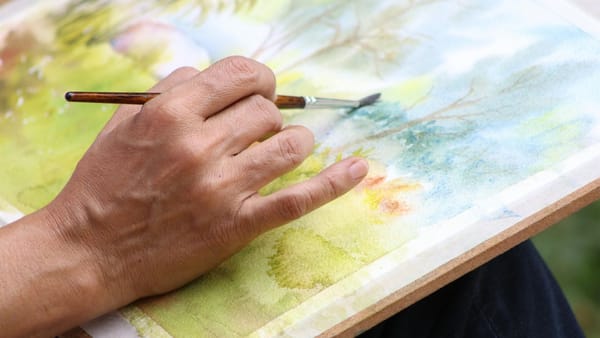The Only 5 Watercolor Brushes You Need
Discover the only 5 watercolor brushes you need and unlock the potential of your artistic expression with every stroke. Best watercolor brushes.
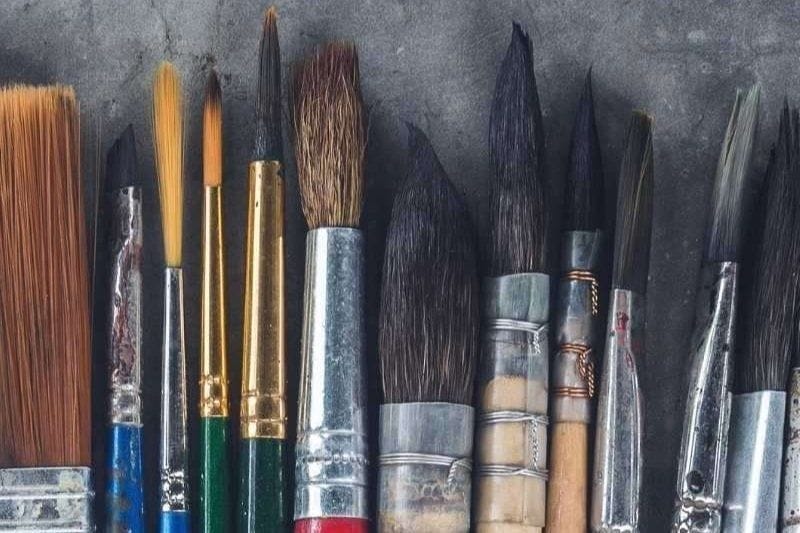
One crucial tool in the watercolor artist’s arsenal is the brush. After spending 10+ years slinging watercolor paint I’ve narrowed down the selection to only five watercolor brushes I use and recommend. However, with a multitude of options available in the market, choosing the right brushes for beginners and aspiring artists can be a daunting task. Hopefully this article will help you in making smart, cost-effective purchase decisions.
Here are the watercolor brushes you need
To simplify your decision-making process, we have curated a list of the top 5 watercolor brushes that are ideal for beginners and will help you embark on your artistic journey with confidence and ease.
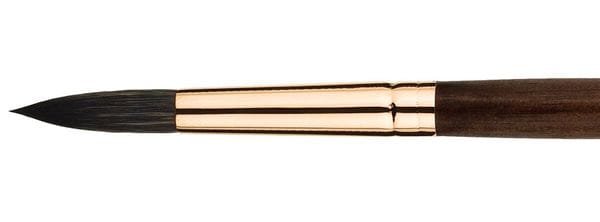
Large Pointed Round Brush #12
The round brush is a staple in every watercolorist’s collection. It is versatile, allowing artists to create both broad strokes and intricate details. When selecting a round brush, consider the size and the quality of the bristles.
For beginners, it is recommended to start with a medium to large-sized round brush, as it offers better control over paint application. A brush with synthetic bristles is an excellent choice for beginners as it is more affordable and easier to clean than natural hair brushes.
I highly recommend Princeton Neptune pointed round #12! They’re incredible brushes in so many ways. Once I started using them I never looked back.
Shop 12″ Pointed Round on Amazon
Shop 12″ Pointed Round on Blick
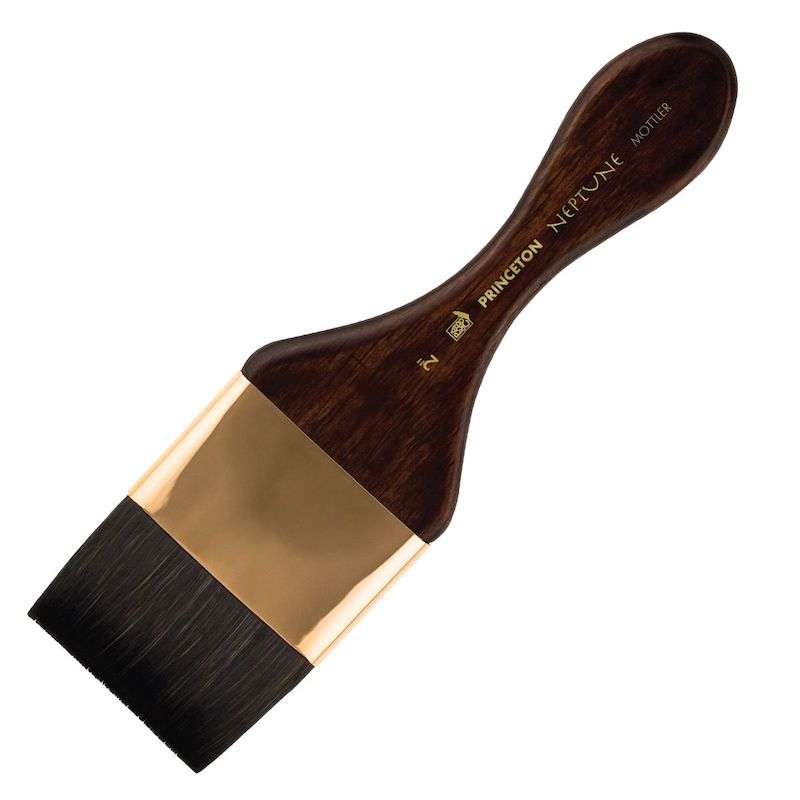
Mottler Wash Brush 2″
A flat wash brush is essential for achieving large washes and smooth, even layers of color. This brush has a broad, flat shape, which allows you to cover a larger area quickly.
Look for a brush with soft and absorbent bristles, as this will ensure an even distribution of paint and prevent streaks. A synthetic blend or squirrel hair brush is ideal for beginners due to its affordability and superior water-holding capacity.
My top choice in this department is Princeton Neptune Mottler 2″ brushes. This way you have a second option for laying down a large wash and will take some wear and tear off your large quill, or mop brush.
Shop 2″ Mottler on Amazon
Shop 2″ Mottler on Blick
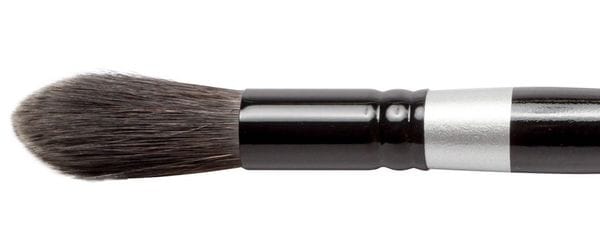
Jumbo Mop Brush
The mop brush is known for its ability to hold a large amount of water and paint, making it perfect for creating soft, flowing washes and blending colors. This brush has a rounded shape with ultra-soft bristles that provide a delicate touch to your artwork.
While natural hair brushes, such as squirrel or goat hair, are commonly used for mop brushes, synthetic alternatives can be more suitable for beginners due to their lower cost and easier maintenance.
I personally recommend the Silver Black Velvet Jumbo Round brushes as my top choice. These brushes are not only affordable but also durable, standing the test of time. I’ve used mine for over 5 years, even with a heavy hand, and it has maintained its bristles and performance exceptionally well.
Shop 2″ Mottler on Amazon
Shop 2″ Mottler on Blick

Dagger Brush
The fan brush is a unique tool that offers a variety of effects in watercolor painting. Its distinctive fan-shaped bristles can create textures, foliage, and even hair strands with ease. This brush is particularly useful for adding texture to trees, bushes, and other natural elements in your watercolor paintings.
Opt for a brush with synthetic bristles that are both soft and springy, allowing for better control and versatility.
You probably know that I’m a huge Princeton Neptune fan! Their brushes are outstanding in every way. And the Princeton dagger 3/8″ is a must have in my opinion. It can create some very expressive brushstrokes and handle very fine lines.
Shop 2″ Mottler on Amazon
Shop 2″ Mottler on Blick
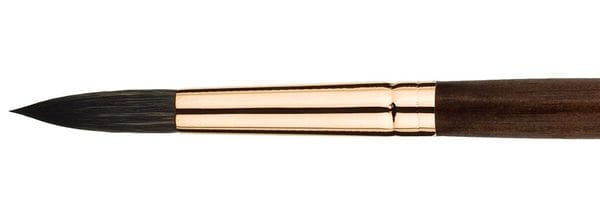
Small Pointed Round Brush
A rigger brush, also known as a liner brush, is a thin, pointed brush that is perfect for creating fine lines and details in your watercolor artwork. It is particularly useful for adding intricate details like branches, fur, or calligraphy to your paintings.
When choosing a rigger brush, look for one with long, flexible bristles that can hold a decent amount of paint. Synthetic rigger brushes are an excellent option for beginners as they offer good control and are more affordable than their natural hair counterparts.
My recommendation here is to stick with Princeton Neptune and opt for the #6 pointed round. Awesome for handling details and small accents hues towards the end of a painting.
Shop 2″ Mottler on Amazon
Shop 2″ Mottler on Blick
Conclusion
Selecting the right watercolor brushes is crucial for beginners and aspiring artists, as they can greatly influence the outcome of your paintings. The top 5 brushes discussed in this guide, including the round brush, flat wash brush, mop brush, fan brush, and rigger brush, offer a well-rounded selection that will cater to the majority of your watercolor painting needs.
Remember to consider the size, quality, and bristle type when choosing brushes, and don’t hesitate to experiment and find what works best for you. With these brushes in hand, you can confidently explore the captivating world of watercolor painting and unlock your artistic potential. Happy painting!
